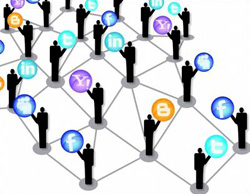
Responsibility, public discourse and the social media

A tactless statement, allegedly taken out of the context, appeared in the social media. It caused a reaction of the public and for a while the whole affair appeared in the mass media. The fact that the statement was made by a person with a high public profile made the issue even more sensitive. A special panel debate was organized to discuss the subject, especially the freedom of speech, censorship on the Internet and online reputation. Important issues were touched, but it seems that in the heat of the discussion a crucial subject was not given sufficient attention, remaining hidden somewhere deep in our minds as a matter tied to personal opinions, upbringing or simply tactfulness.
The functioning of the public discourse should be well-known to those who are professionally involved with the media and communication, as well as those who live under the watchful eye of the public. These individuals have a significant influence on spreading of ideas and formation of public opinion. Each public personality should be aware of their responsibility. Carefully thought-out public statements or media exposure can create a certain picture and send a desirable message, while carelessness in doing so is viewed as a serious faux pas.
The social media, despite their origin in the cyber world of William Gibson – a virtual reality that is an antithesis of the reality that we live in, a world made of avatars and parallel identities – can hardly be called virtual anymore. In the 21st century, the social media have a strong influence on the public discourse. Although it is less formal and more spoken-like in its nature, lacking conventional boundaries and limitations of the mass media, which adheres to the existing forms and rules, it seems that the social media have not been taken sufficiently seriously and that their categories, limitations and rules are susceptible to individual interpretation. It seems that the physical distance from our conversation partners in communication via social networks – about whom we often don't know anything about – and the whiteness of the computer screens in front of us have a special effect on the authors of the messages, eliminating their inhibitions and allowing them to show their own alter ego, their other or imaginary self. Consciously or subconsciously, the Internet is perceived as a playground for testing the limits of what is acceptable, while the virtual reality is used as an excuse for violation of and deviation from accepted rules and established criteria of civilized communication. It seems that the awareness about the significance of written communication and the influence we might have on others is often lacking or completely absent.
If your profile on a social network is open to the public, your audience consists not only of your "followers", but also includes the general public – which includes everyone who can understand your message. It is highly necessary to be aware of this fact. In such a situation, there can be no expectation of privacy. The social network functions as as your own personal mass media, similar to newspapers, radio or television – but available online. You have all the control, because you act as an editor of your own media, but you also bear responsibility for its content.
A spoken word, especially in the public discourse, carries a certain weight. The social media have not changed this rule and we must be aware of that.
Jelena Mickic
MC Newsletter,
November 4, 2011
View all comments (0) Leave a comment
Published comments contain opinions that are not the opinions of Media Center. Responsibility for the content of messages and their accuracy lies on the website users who posted them.
 |
| The content of this article does not necessarily reflect the view of the Media Center. The author bear full responsibility for the content of the text. |





